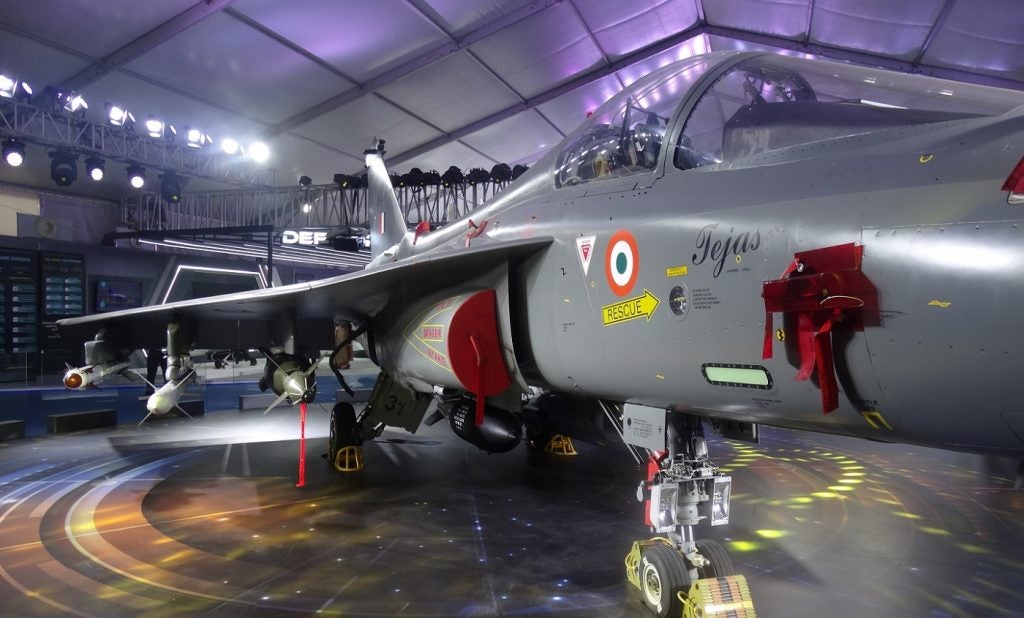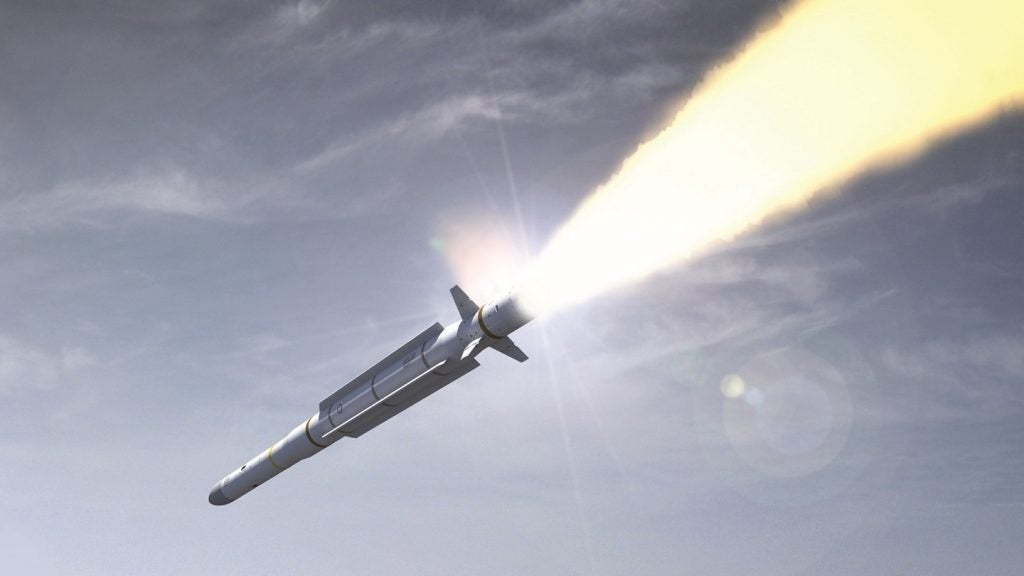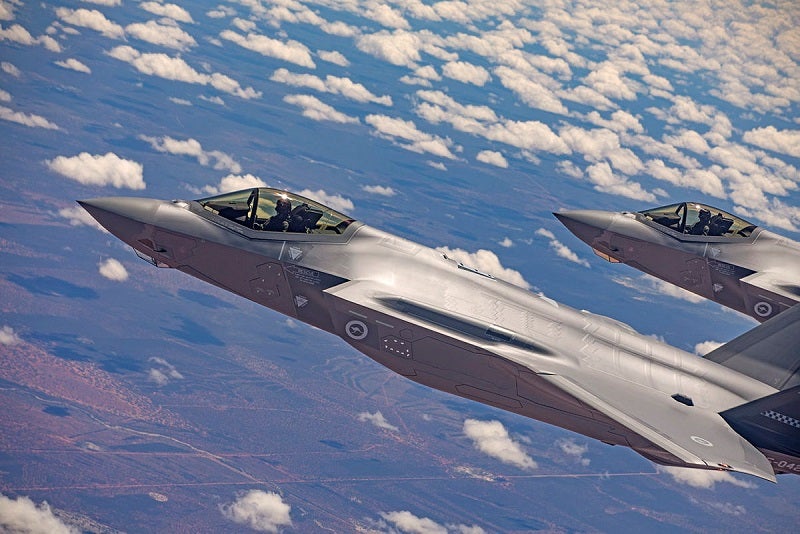India’s Defence Research and Development Orgnaisation (DRDO), a branch within the Ministry of Defence (MOD), has handed over indigenously built components to an industrial supplier, Hindustan Aeronautics Limited (HAL), to be fitted onto the next Tejas fighter iteration, the Mark 1A (Mk1A).
Building on the Indian Air Force’s original Tejas fighter jet, which entered service in 2016, the Mk1A will cost $4.5bn over the next ten years, according to GlobalData. The DRDO has widened the indigenous supply chain, having sourced various components across India’s fledgling defence industry.
As part of these efforts, the DRDO has handed over the first batch of cutting-edge actuators and an airbrake control module to HAL for the LCA Tejas Mk1A.
Tejas is a single-seat, single-engine, lightweight, high-agility supersonic fighter aircraft. It has a delta design with shoulder-mounted delta wings. It has a fin but no horizontal tail. Lightweight materials, including aluminium, lithium and titanium alloys, and carbon composites, have been used in the construction.
There is also a naval variant, which completed a flight test aboard the Indian Navy’s aircraft carrier, INS Vikramaditya in 2020.
Driven by the need to address critical deficiencies in the Tejas Mk1 aircraft variant, India was compelled to develop a new upgrade specification for the baseline light combat aircraft (LCA). Mk1A is said to incorporate more than 40 improvements over the original Mk1 version, which entered service in 2016.
With HAL as the prime contractor, India placed the order for the acquisition of 83 LCA Mk1A aircraft in February 2021, with the first units of the aircraft expected 36 months after the signing of the contract. The deliveries of aircraft are expected to commence sometime in 2024 and will be delivered at the rate of 16 aircraft annually.
The secondary flight control of LCA-Tejas, comprising leading edge slats and airbrakes, now has servo-valve-based electro-hydraulic servo actuators and control modules. These high-pressure, redundant servo actuators and control module, characterised by astute design, precision manufacturing, assembly, and testing, represent a culmination of the DRDO’s pursuit of indigenous technological prowess.
The production of these components is underway at the Accessories Division of HAL in Lucknow, marking a significant stride toward strengthening India's aerospace manufacturing capabilities.
Noteworthy contributions from public and private industries, including Godrej Aerospace, Mumbai, alongside certification agencies such as CEMILAC and DGAQA, have been instrumental in this endeavour.











